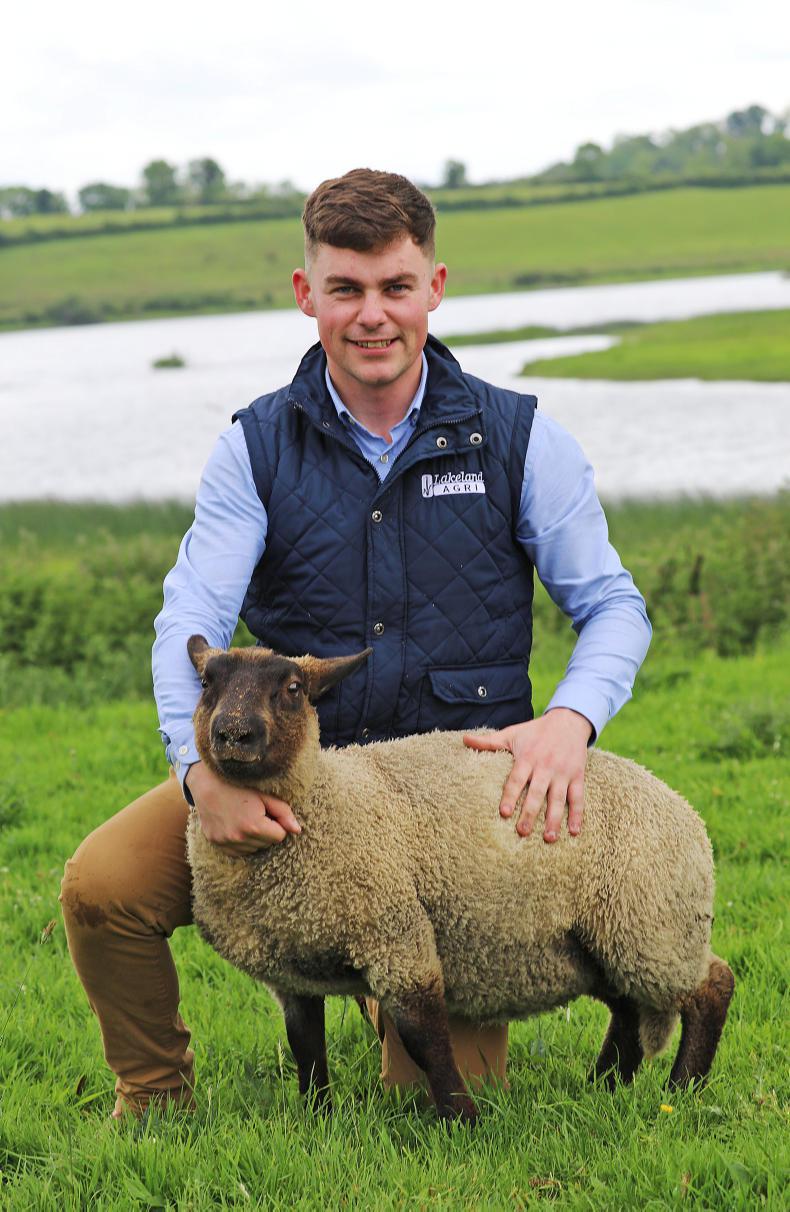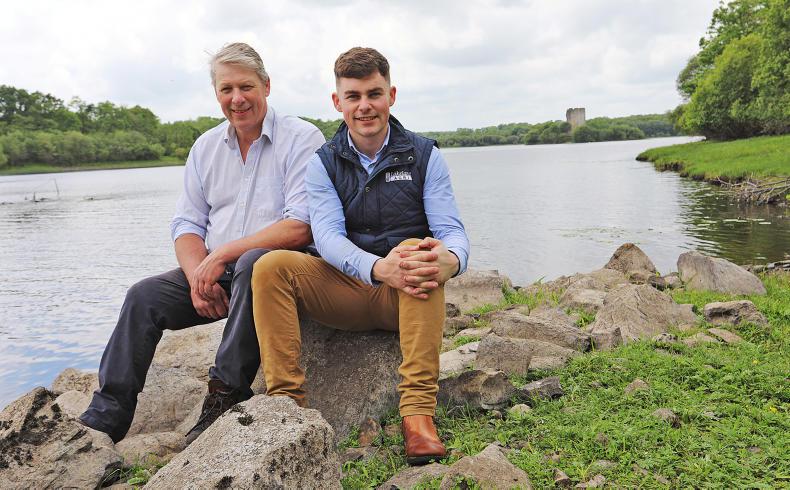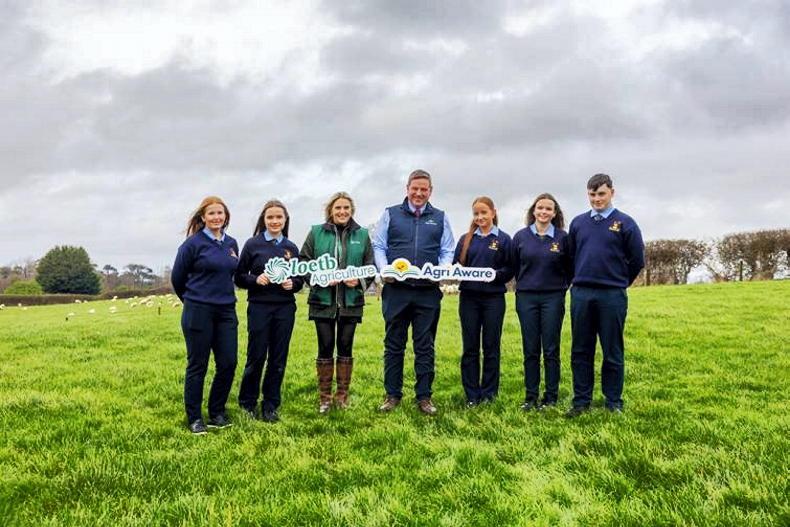June will see the beginning of the newest influx of graduates entering the agri-food industry. Over the course of the summer months, more graduates will begin their new roles across the sector. For those without jobs, the search will continue over the summer. For those who have secured jobs, there can be nerves before they begin their first full-time role. The transition for these individuals between college life and working life can prove difficult for some.
“Adjusting from college to work life was tough. You go from studying to working full time very suddenly and that can be difficult,” so says Cavan native Gary Tubman, who was a new graduate fresh out of UCD in 2016. After spending his third-year college placement with Lakeland Dairies, the then-23-year-old was offered a full-time position after he graduated.

“The training in Lakeland Dairies helped me a lot through that time. Just working closely with people in those early days at the company was a huge help. One day working alongside them was as good as a week in the office reading it out of a book,” he said.
“I don’t know how prepared I was for working full time. I suppose when you are in final year you are aware that college is coming to an end. When you enter the industry, you are aware that it is very competitive and you have to work hard and if you don’t this industry will eat you up. You have to learn fast.”
In August 2016, Tubman began his role as a technical sales rep in the agri division team of Lakelands Dairies. His post assigned him to Northern Ireland, covering Tyrone, Down and north Armagh.
“Of course I was nervous when I started. You get your first few weeks training and you find your bearings. But if you call to a farm and you don’t know what you are talking about, you won’t be in that yard too long.”
Adaption became a major part of the Cavan man’s new post. Adjusting to working life was accompanied by coming to terms with the differences between farmers from both sides of the border.
“There are differences between farmers in the North and south. The farming systems in the North focus on high input, high output. You have to learn pretty fast and adapt to these methods and techniques to be able to do your job. But there are similarities. At the end of the day, my job is to help farmers and sell the products to farmers in the best way possible.”
The route to working in ag
Tubman grew up on a 50-cow dairy farm in Derena, Milltown near Belturbet. Like so many working in the industry, his early career was spent working on the farm, forming his passion for the sector.

“I suppose the biggest influences I would have had would have been my father and brother. I worked with them from a young age and I knew I had a passion for animals and farming.
“I would have been around 16 when I realised I wanted to work in the industry. At the time, I had summer work and I was using the money to buy in sheep so I was already getting independent and getting involved in the farm,” he explained.
“There was never a doubt I was going to study ag in college. I wasn’t going to settle for anything else. When I filled out the CAO it was centred on those courses. When the CAO offers came out I got agricultural science in UCD.”
Tubman began in UCD in 2012, before branching out to animal and crop production in 2013, in his second year of the course. The third year of the course saw him go to Lakeland for professional work experience (PWE) in the member relations department.
Fast forward to 2019, and Tubman has been at the company three years. His job is in sales, but his portfolio stretches into an advisory role with the majority of his time spent on farms.
You do get job satisfaction out of it. If I visit a farmer who is having difficulties on his farm and I give him advice on how to improve and they see results, that is a great feeling
“I suppose I would aim to be at my first farm at 9.30am every morning and I would try to leave the last farm at 4.30pm. The last thing a farmer wants is you to be hanging around the farm when he is trying to get the evening milking done. I would try to visit between eight to 10 farms each day if possible.
“You do get job satisfaction out of it. If I visit a farmer who is having difficulties on his farm and I give him advice on how to improve and they see results, that is a great feeling. That is why you call out to the farms. I get great satisfaction out of that.”
A job in sales
“At the end of the day, the bottom line is selling the product and my job is as a salesman. It is not all rosy in the garden. You have good days and bad days. I always say about sales jobs, there are two steps forward and one step back. While you may have a solid two or three months, next month may not be as good. You just have to move on and be positive.”
I was just out of college and had a full-time job when the land came up for sale. It was a once-in-a-lifetime thing and I couldn’t let it go by
While Tubman works full time with Lakeland, he has not left his desire to farm himself to one side. At 24, the newly graduated Tubman bought a 20-acre holding close to his home farm. Soon after he built a shed and purchased a 50-ewe flock.
“I was just out of college and had a full-time job when the land came up for sale. It was a once-in-a-lifetime thing and I couldn’t let it go by without taking the chance on it. It can be tricky having a full-time job and a farm, especially during lambing. I was very lucky that I had my father and my brother around. People have said to me it was the cheapest form of labour but I brushed it off as great help,” he laughed.
June will see the beginning of the newest influx of graduates entering the agri-food industry. Over the course of the summer months, more graduates will begin their new roles across the sector. For those without jobs, the search will continue over the summer. For those who have secured jobs, there can be nerves before they begin their first full-time role. The transition for these individuals between college life and working life can prove difficult for some.
“Adjusting from college to work life was tough. You go from studying to working full time very suddenly and that can be difficult,” so says Cavan native Gary Tubman, who was a new graduate fresh out of UCD in 2016. After spending his third-year college placement with Lakeland Dairies, the then-23-year-old was offered a full-time position after he graduated.

“The training in Lakeland Dairies helped me a lot through that time. Just working closely with people in those early days at the company was a huge help. One day working alongside them was as good as a week in the office reading it out of a book,” he said.
“I don’t know how prepared I was for working full time. I suppose when you are in final year you are aware that college is coming to an end. When you enter the industry, you are aware that it is very competitive and you have to work hard and if you don’t this industry will eat you up. You have to learn fast.”
In August 2016, Tubman began his role as a technical sales rep in the agri division team of Lakelands Dairies. His post assigned him to Northern Ireland, covering Tyrone, Down and north Armagh.
“Of course I was nervous when I started. You get your first few weeks training and you find your bearings. But if you call to a farm and you don’t know what you are talking about, you won’t be in that yard too long.”
Adaption became a major part of the Cavan man’s new post. Adjusting to working life was accompanied by coming to terms with the differences between farmers from both sides of the border.
“There are differences between farmers in the North and south. The farming systems in the North focus on high input, high output. You have to learn pretty fast and adapt to these methods and techniques to be able to do your job. But there are similarities. At the end of the day, my job is to help farmers and sell the products to farmers in the best way possible.”
The route to working in ag
Tubman grew up on a 50-cow dairy farm in Derena, Milltown near Belturbet. Like so many working in the industry, his early career was spent working on the farm, forming his passion for the sector.

“I suppose the biggest influences I would have had would have been my father and brother. I worked with them from a young age and I knew I had a passion for animals and farming.
“I would have been around 16 when I realised I wanted to work in the industry. At the time, I had summer work and I was using the money to buy in sheep so I was already getting independent and getting involved in the farm,” he explained.
“There was never a doubt I was going to study ag in college. I wasn’t going to settle for anything else. When I filled out the CAO it was centred on those courses. When the CAO offers came out I got agricultural science in UCD.”
Tubman began in UCD in 2012, before branching out to animal and crop production in 2013, in his second year of the course. The third year of the course saw him go to Lakeland for professional work experience (PWE) in the member relations department.
Fast forward to 2019, and Tubman has been at the company three years. His job is in sales, but his portfolio stretches into an advisory role with the majority of his time spent on farms.
You do get job satisfaction out of it. If I visit a farmer who is having difficulties on his farm and I give him advice on how to improve and they see results, that is a great feeling
“I suppose I would aim to be at my first farm at 9.30am every morning and I would try to leave the last farm at 4.30pm. The last thing a farmer wants is you to be hanging around the farm when he is trying to get the evening milking done. I would try to visit between eight to 10 farms each day if possible.
“You do get job satisfaction out of it. If I visit a farmer who is having difficulties on his farm and I give him advice on how to improve and they see results, that is a great feeling. That is why you call out to the farms. I get great satisfaction out of that.”
A job in sales
“At the end of the day, the bottom line is selling the product and my job is as a salesman. It is not all rosy in the garden. You have good days and bad days. I always say about sales jobs, there are two steps forward and one step back. While you may have a solid two or three months, next month may not be as good. You just have to move on and be positive.”
I was just out of college and had a full-time job when the land came up for sale. It was a once-in-a-lifetime thing and I couldn’t let it go by
While Tubman works full time with Lakeland, he has not left his desire to farm himself to one side. At 24, the newly graduated Tubman bought a 20-acre holding close to his home farm. Soon after he built a shed and purchased a 50-ewe flock.
“I was just out of college and had a full-time job when the land came up for sale. It was a once-in-a-lifetime thing and I couldn’t let it go by without taking the chance on it. It can be tricky having a full-time job and a farm, especially during lambing. I was very lucky that I had my father and my brother around. People have said to me it was the cheapest form of labour but I brushed it off as great help,” he laughed.











SHARING OPTIONS